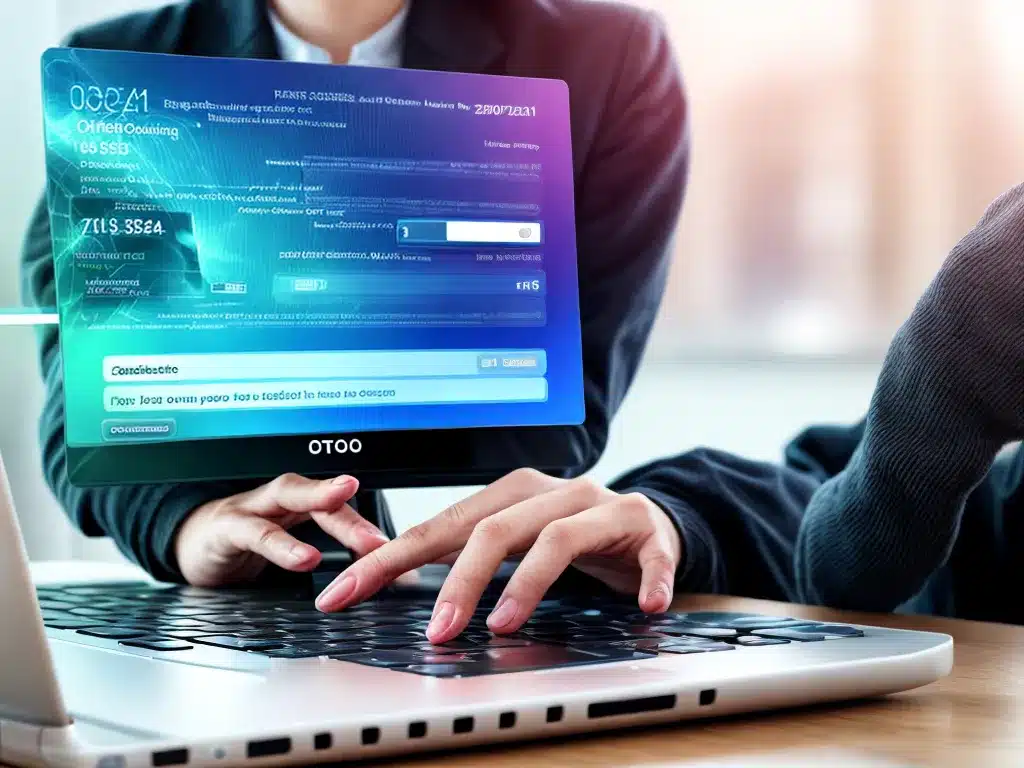Use Strong and Unique Passwords
Passwords are still one of the best ways to secure your online accounts. In 2024, it’s more important than ever to use strong, unique passwords for each account. Here are some tips:
- Use passwords that are at least 12 characters long. The longer the better.
- Include a mix of uppercase and lowercase letters, numbers, and symbols.
- Avoid common words, names, dates, or other personal information.
- Use a unique password for each account. Never reuse passwords.
- Consider using a password manager like LastPass or 1Password to generate and store secure passwords.
- Change passwords periodically, at least once a year.
It takes effort to create and remember many strong, unique passwords. But it’s one of the most important steps to securing your online presence in 2024.
Enable Two-Factor Authentication
Two-factor authentication (2FA) adds an extra layer of security beyond just a password. With 2FA enabled, you’ll need to provide two forms of verification to access an account:
- Something you know, like a password or PIN code
- Something you have, like a code from an authenticator app or a security key
In 2024, every online account that offers 2FA should have it enabled. Some examples include:
- Email accounts like Gmail and Outlook
- Social media accounts like Facebook, Twitter, and Instagram
- Financial accounts like banking, investment, and credit cards
- Shopping accounts like Amazon, eBay, and Walmart
- Work accounts like remote access and VPN
The minor inconvenience of 2FA is worth the much stronger account security it provides. Treat it as a required step when available.
Be Wary of Public Wi-Fi Networks
It’s tempting to connect to free public Wi-Fi when you’re out and about. However, public networks come with risks in 2024, just as they did in the past.
When you connect, your online activity can potentially be monitored or exposed to criminals. It’s best to avoid logging into sensitive accounts like banking and email over public Wi-Fi.
If you need to access them, use a virtual private network (VPN) to encrypt your connection. Some good, reputable services include NordVPN, ExpressVPN, and TunnelBear.
Also be cautious of shoulder surfing in public places. Position yourself so that others can’t easily see your screens and devices.
Keep Software Updated
Developers constantly release updates to fix security flaws and bugs in software programs and apps. That includes your operating systems, web browsers, productivity software, and any other programs.
In 2024, it’s critical to:
- Enable automatic updates whenever possible. This ensures you get the latest security patches.
- Update regularly on devices that lack auto updates, like manually updating apps on your smartphone.
- Remove unused programs and apps that no longer receive updates. These can become vulnerabilities.
Keeping everything updated is one of the easiest ways to boost your overall security posture. Don’t ignore notifications to update – install them as soon as you can.
Use a Password Manager
As discussed above, you should use unique, strong passwords for every account in 2024. But how do you manage all those passwords securely? That’s where a dedicated password manager comes in handy.
A password manager generates, stores, and fills in login credentials for you. All you need to remember is one master password to access the vault. Leading options include:
-
LastPass: Offers a free basic tier with premium upgrades for added features. Browser plugins and mobile apps available.
-
1Password: Requires a paid subscription but offers seamless syncing across devices.
-
Bitwarden: Full-featured open source password manager with a variety of pricing tiers.
I recommend using a password manager in 2024 to easily use unique passwords everywhere without losing track of them.
Beware of Phishing Attempts
Phishing scams remain prevalent in 2024. The goal is to trick you into handing over login credentials or sensitive information to cybercriminals. Common phishing tactics include:
- Fake login pages for online accounts
- Emails pretending to be from legitimate companies
- Malicious attachments and links in messages
- Calls claiming to be tech support from major companies
Be wary of unsolicited messages asking you to login or provide personal information. Verify the source is legitimate before clicking links or attachments. Avoid calling numbers provided in suspicious messages.
Use common sense scrutiny along with security software to detect and avoid phishing in 2024. Don’t let your guard down.
Monitor Accounts for Suspicious Activity
Once you’ve set up strong security practices, keep monitoring your online accounts for any suspicious activity:
- Review account activity and settings frequently. Look for any logins from unknown locations or new devices.
- Use account recovery options like secret questions and backup email addresses. Make sure they’re up-to-date.
- Watch for fraudulent transactions on financial accounts and report any detected right away.
- Change passwords immediately if an account may have been compromised. Enable additional security options if available.
Assume that some attacks will inevitably break through eventually in 2024. That’s why monitoring and damage control are so crucial. Be proactive about inspecting your online presence routinely.
Back Up Important Data
Despite your best efforts at security, there’s always a risk of losing access to your online accounts – whether due to hacking, forgotten passwords, or service outages. That makes backups extremely important in 2024.
- Use cloud storage like Dropbox or Google Drive to backup important files and documents.
- Export and save data from online services when possible, like your emails or social media history.
- Protect backups with encryption, 2FA, and secure remote storage not connected full-time to your main devices.
With reliable backups, you can more easily recover from any worst case scenarios. Don’t wait until it’s too late – implement backup systems for your most critical data.
In Summary
Online security will continue to be a moving target in 2024. While threats and technology constantly evolve, adopting the measures outlined here can help you stay much more secure:
- Strong, unique passwords and 2FA everywhere
- Caution on public networks
- Prompt software updating
- A dedicated password manager
- Avoiding phishing attempts
- Monitoring accounts closely
- Backing up important data
No single solution is perfect, but combining these best practices greatly reduces your risks. Stay vigilant, and don’t become complacent – that’s the key to protecting your online presence in the future.












